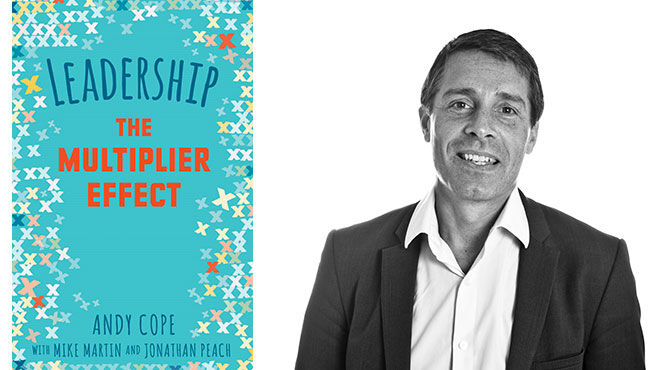How do great leaders banish the post-holiday blues?
How to make work not feel like work - recommendations for playing to your strengths and consigning the ‘holiday blues’ to George Orwell’s fabled Room 101.

E=mc2 or how to make the most of your strengths
Time Magazine’s 'Person of the Century' never took a holiday. When the hero of our story was growing up he was referred to as the 'dopey one', who struggled with words to the point that his family feared that he’d never learn to speak. He struggled at school, with one teacher telling him that he’d never amount to anything. He muddled through college with uneven grades, and struggled to find a job. Our hero wanted to be a teacher, but it took him nine years to land his first teaching job!This is hardly the stuff of comic books – but of course, all we’ve talked about are his weaknesses. Fortunately, he didn't focus on his weaknesses; he focussed on his strengths. Our hero’s strengths lay in creative thinking – imagining thought experiments that unlocked theoretical physics. Rather than thinking in words, he thought in pictures. He imagined what things would look like if he were to travel on a bullet at the speed of light and whether space might curve.With his incredible imagination, he helped prove the existence of atoms and developed science's most famous equation: E=MC2. With his brilliant thoughts, he completely revolutionised science.Of course, we are talking about Albert Einstein, considered by many as the greatest genius who ever lived.So, guess what, Einstein was like you and everyone who works for you – genius at some things and spectacularly bad at others. Fortunately, he worked hard to develop his strengths and didn’t let his weaknesses hold him back.What makes an exceptional, fulfilled employee and worker?
And that’s what made him stand head and shoulders above so many others. Sadly, our corporate preoccupation with fixing weaknesses also does a great hatchet job of diminishing the strengths on the other side. It creates a whole load of average automatons and means nobody will be outstanding at anything. Eradicating weaknesses creates middling, run-of-the-mill, Jacks-of-all-trades.Our starting point is that we’re not human beings that are flawed, or problems waiting to be solved; we are potential waiting to unfold. Thrusting your positive best self forward is like putting yeast into the organisational dough.If we, and those around us, wish to become truly outstanding, love what we do and have to be forced to take our holiday, then the only thing more important than blood, sweat and tears is to play to our strengths. It puts us in a state of flow, that Goldilocks working environment where you’re challenged and engaged in just the right amount. These are the days when work doesn’t feel like work and (whisper it quietly...) but you would have done the day for free.
How to make work not feel like work?
Creating an environment of flow is heady stuff. Indeed, it’s your businesses competitive advantage. But if it’s so powerful why do stats suggest that only two out of ten people get to use their strengths every day?Looking to offer coaching to your team? Find out about some of the benefits from Relocate partners, The AoEC.
Imagine if it was seven out of ten – or even higher? What would that do in terms of results, engagement and making every day feel like a holiday.So our recommendation for consigning the ‘holiday blues’ to Orwell’s fabled room 101 are:
- Make sure that in your team, at least 7 out of 10 people get to use their strengths every single day.
- If you’re not currently the leader and cannot influence things as much as you’d like, make sure you’re one of the 2 out of 10, the minority who get to play to their strengths on a daily basis.
©2025 Re:locate magazine, published by Profile Locations, Spray Hill, Hastings Road, Lamberhurst, Kent TN3 8JB. All rights reserved. This publication (or any part thereof) may not be reproduced in any form without the prior written permission of Profile Locations. Profile Locations accepts no liability for the accuracy of the contents or any opinions expressed herein.






































